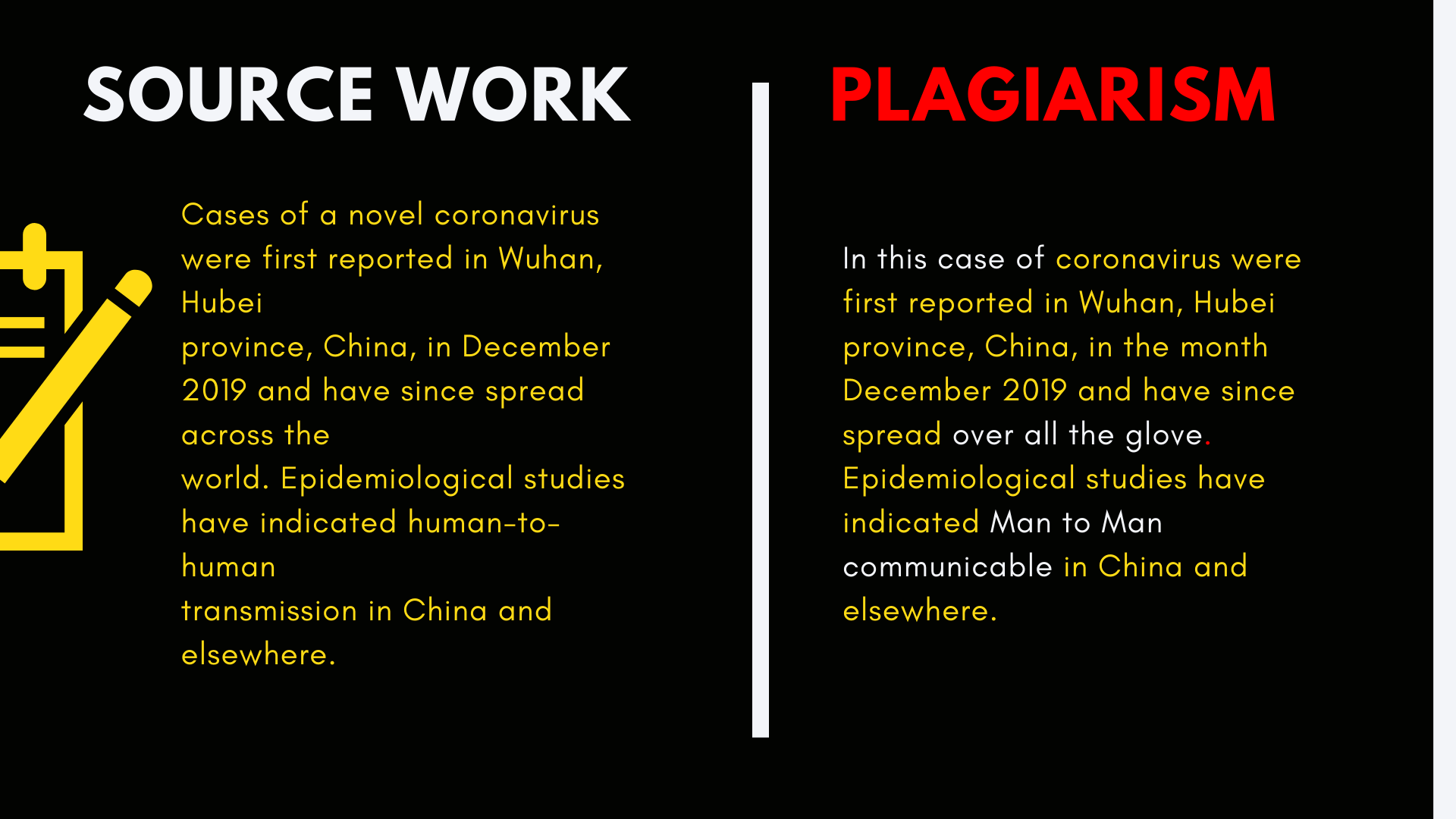Plagiarism Is A Form Of Copyright Infringement
Plagiarism Is A Form Of Copyright Infringement - Plagiarism means using someone else’s work without giving them proper credit. Web plagiarism, in turn, is a type of copyright infringement, in which a person presents the original ideas of another person as one’s own or fails to reference the author. It’s important to always provide accurate and complete citations for any information or ideas borrowed from other sources. Plagiarism is the act of presenting someone else’s work, ideas, or words as one’s own without giving proper credit or acknowledgement. One can plagiarize someone else’s work regardless of the copyright status of that work. How can i avoid it? All authors should be familiar with the difference between plagiarism and copyright infringement, and how to avoid them. Plagiarism and copyright infringement may have some overlap, but they are discrete considerations. Web plagiarism is not a criminal offence. Plagiarism is a form of academic dishonesty that can arise from falsely claiming the ideas and scholarship of another person as your own.
If it’s plagiarism, it must be copyright infringement, and vice. Web plagiarism ≠ copyright infringement. Web copyright infringement is the unauthorized use of another person’s original creative works, which includes literary, artistic, musical, or other types of content protected by copyright law. Web the biggest difference is that copyright infringement is illegal, while plagiarism is not. What are the differences between copyright and plagiarism? Copyright infringement is the unlawful use of work that is subject to copyright protection in a way that violates the exclusive rights of the copyright holder. Plagiarism occurs when you use someone else’s words or ideas without giving credit to the original author.
( tech law journal) plagiarism is using someone else's work or ideas without giving proper credit. However, there is a difference between these two terms. In practice, this can mean a few different things. Web plagiarism is simply not providing proper attribution of someone else’s work. Plagiarism is a form of copyright infringement.
Web plagiarism is the act of presenting someone else’s ideas, words, or work as your own without giving them proper credit. It is the violation of the exclusive rights granted to a copyright owner, which are reproduction, distribution, performance, and display of the work. Plagiarism is using other people's original work without crediting them as the source. Web plagiarism, on the other hand, is a harm that is grounded in ethics. Plagiarism is the act of presenting someone else’s work, ideas, or words as one’s own without giving proper credit or acknowledgement. Web plagiarism is a form of academic misconduct that occurs when you represent the work and/or ideas of another person as your own, original work.
Web plagiarism, on the other hand, is a harm that is grounded in ethics. Web copyright infringement includes the unauthorized or unlicensed copying of a work subject to copyright. It is the violation of the exclusive rights granted to a copyright owner, which are reproduction, distribution, performance, and display of the work. Copyright infringement can, in fact, constitute criminal behavior, as opposed to a civil infraction, and sometimes even rises to the level of a felony. Web plagiarism is simply not providing proper attribution of someone else’s work.
Copyright infringement is using someone else’s work without their consent. Even if a work is properly cited and. Avoiding plagiarism is essential for academic scholars and professional writers. Web the difference matters—not least because plagiarism, while dishonest and reprehensible, is not illegal.
Plagiarism Means Using Someone Else’s Work Without Giving Them Proper Credit.
The most widespread and also detectable cases of plagiarism occur in writing. Plagiarism is a form of academic dishonesty that can arise from falsely claiming the ideas and scholarship of another person as your own. Haliza said ip protection encourages industry players to compete in the market confidently, knowing their offerings will not be. Plagiarism is best defined as the unacknowledged use of another person’s work.
Web Copyright Infringement Is A Violation Of Intellectual Property Laws.
Web how is copyright related to plagiarism? Web plagiarism is not a criminal offence. Plagiarism is the act of presenting someone else’s work, ideas, or words as one’s own without giving proper credit or acknowledgement. ( tech law journal) plagiarism is using someone else's work or ideas without giving proper credit.
However, There Is A Difference Between These Two Terms.
Copyright infringement is the unlawful use of work that is subject to copyright protection in a way that violates the exclusive rights of the copyright holder. Web plagiarism is the act of presenting someone else’s ideas, words, or work as your own without giving them proper credit. Web copyright infringement includes the unauthorized or unlicensed copying of a work subject to copyright. Copyright infringement can, in fact, constitute criminal behavior, as opposed to a civil infraction, and sometimes even rises to the level of a felony.
How Can I Avoid It?
It is an ethical issue involving a claim of credit for work that the claimant did not create. Is plagiarism a form of copyright infringement? Legal consequences can include fines, damages, and injunctions against further infringement. On the other hand, plagiarism is primarily an ethics breach related to academic and creative integrity.







